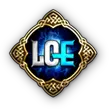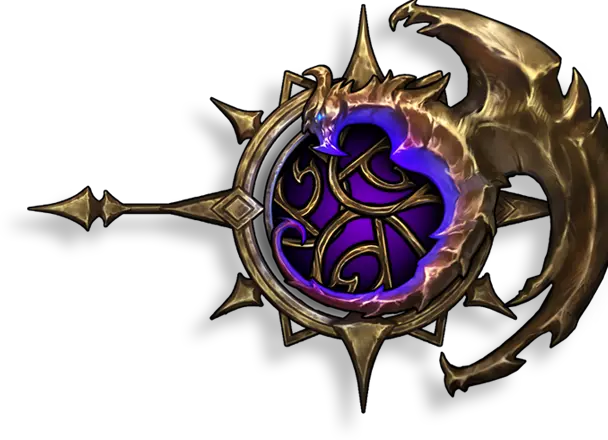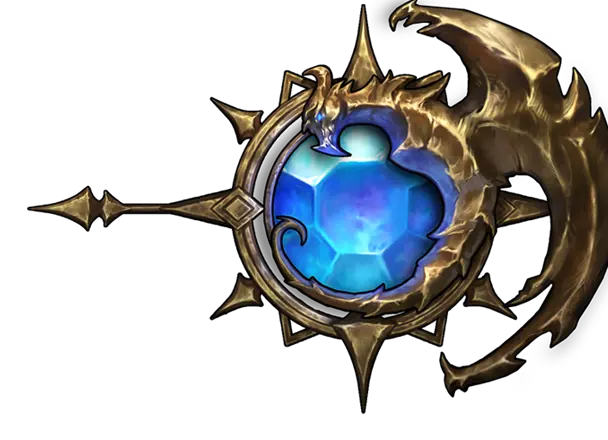Legends of Elysium vs Yu-Gi-Oh
Yu-Gi-Oh: Tactical & Strategic Mastery in the TCG World
Tactic in Yu-Gi-Oh
In Yu-Gi-Oh, tactical gameplay revolves around precise card placement and quick decision-making during duels. Players must read their opponents, adapt to the evolving game state, and make calculated moves to outmanoeuvre their adversaries.
Key Tactical Features:
- Chain System: Players can activate multiple card effects in response to their opponent’s actions, creating chains of effects that resolve in reverse order. Understanding this mechanic is crucial for interrupting enemy plays.
- Battle Phases: Tactical choices during the Battle Phase, such as attacking or holding back, can drastically impact the duel. Players must consider both offensive and defensive strategies.
- Hand Traps: These cards can be played directly from the hand during the opponent’s turn, adding an element of surprise and disrupting their tactics.
Strategy in Yu-Gi-Oh
The strategic depth of Yu-Gi-Oh lies in building a deck that synergises well and adapting it to counter the ever-changing metagame. Long-term success requires careful planning and knowledge of the game’s vast card pool.
Key Strategic Elements:
- Deck Building: Players must construct a deck of 40 to 60 cards, balancing between monsters, spells, and traps to create a coherent strategy. The choice of archetype heavily influences the deck’s overall playstyle.
- Resource Management: Unlike other TCGs, Yu-Gi-Oh does not use a resource system like mana. Instead, players must manage limited card draws and field presence to maintain advantage.
- Side Decking: Players can adjust their decks between matches by using a side deck of 15 cards, allowing them to adapt their strategy to counter specific opponents.
Collectible Aspect in Yu-Gi-Oh
Yu-Gi-Oh is renowned for its rich collectible aspect, with thousands of unique cards released since its inception. This variety fuels the desire to build unique decks and collect rare cards.
Key Collectible Features:
- Card Rarities: Cards come in various rarities, including Common, Rare, Super Rare, Ultra Rare, and Secret Rare. High-rarity cards are sought after by collectors and duelists alike.
- Special Editions: Limited editions, promotional cards, and anniversary sets make collecting even more exciting.
- Thematic Decks: Players can collect cards from specific archetypes, creating decks based on their favourite characters or themes from the anime series.
Trading Aspects in Yu-Gi-Oh
The trading aspect of Yu-Gi-Oh is a core part of its community-driven nature, where players trade cards to improve their collections or acquire rare pieces.
Key Trading Features:
- Local and Online Marketplaces: Players can trade cards in person or through online platforms. The value of cards fluctuates based on their competitive viability and rarity.
- Card Auctions: High-value cards are often auctioned online, with collectors paying significant amounts for rare or limited-edition cards.
- Custom Deck Sales: Players often sell complete custom-built decks, catering to both competitive players and collectors.
Gameplay Mechanics in Yu-Gi-Oh
The mechanics of Yu-Gi-Oh are built around a dynamic interplay of monsters, spells, and traps. The game is fast-paced, with players constantly reacting to their opponent’s moves.
Key Gameplay Mechanics:
- Summoning Types: Players can perform various types of summons, such as Normal, Tribute, Fusion, Synchro, XYZ, Pendulum, and Link Summons. Each type adds depth and variety to gameplay.
- Card Effects: Cards have unique effects that can alter the game state. Players must master the timing and conditions for activating these effects to gain an advantage.
- Life Points System: Each player starts with 8000 Life Points. The goal is to reduce the opponent’s Life Points to zero through strategic play.
What Sets Yu-Gi-Oh Apart
- Unique Summoning Mechanics: The variety of summoning methods, especially the more recent Link Summoning, distinguishes Yu-Gi-Oh from other TCGs.
- Chain and Counter System: The ability to chain card effects and respond to opponents during their turn adds a dynamic, chess-like element to the game.
- Deep Lore and Anime Influence: The connection to the Yu-Gi-Oh anime series adds a rich narrative layer that attracts both players and collectors.
- Constant Evolution: With frequent new sets and rule updates, Yu-Gi-Oh remains fresh and challenging, encouraging players to adapt and innovate constantly.
In conclusion, Yu-Gi-Oh stands out as a TCG that combines tactical complexity, deep strategic planning, and an expansive collectible experience. With its unique mechanics and evolving metagame, it offers both competitive players and collectors a rich, rewarding journey through the world of duelling.
Legends of Elysium Compared to Yu-Gi-Oh – Gameplay Mechanics
The core gameplay mechanics of Legends of Elysium stand apart through their fusion of traditional card-based duelling with a dynamic, hex-based board game element. Unlike Yu-Gi-Oh, which focuses on direct duels using monster, spell, and trap cards to reduce an opponent’s Life Points, Legends of Elysium challenges players to balance card play with strategic board control. Players must terraform hexagonal tiles to create paths for their units, expanding their territory and unlocking powerful field bonuses. This board control aspect introduces spatial tactics, making every battle a dynamic contest of positioning and foresight. Additionally, Legends of Elysium incorporates multiple victory conditions—such as controlling key hexes or defeating enemy heroes—whereas Yu-Gi-Oh relies solely on Life Points. The layered mechanics of Legends of Elysium demand both immediate tactical decisions and long-term strategic planning, creating a deeper, more immersive battlefield experience where every move shapes the course of the game.
Legends of Elysium Like Yu-Gi-Oh – Similarities
Both Legends of Elysium and Yu-Gi-Oh share the quintessential traits that define trading card games, offering players a familiar yet engaging battlefield where mastery is rewarded through clever deck-building and strategic foresight. In both games, the thrill lies in assembling a personalised deck that reflects the duelist’s chosen playstyle, ensuring that every battle is a unique test of wits and preparation. Each card in both titles holds strategic value, whether it’s a game-changing spell or a unit capable of turning the tide. Players must weigh their options carefully, considering not only their cards but also how their opponent might counter their moves. The rarity system is another common thread, with cards categorised by their power and exclusivity, encouraging players to hunt for elusive additions to their collections. Moreover, both games thrive on PvP duels where players pit their skills against rivals in ranked or casual matches. The joy of crafting combos, countering opponents, and adapting tactics is at the core of both experiences. This shared DNA ensures that Legends of Elysium offers a familiar, competitive environment for Yu-Gi-Oh veterans while introducing fresh twists that challenge even seasoned strategists.
Legends of Elysium vs Yu-Gi-Oh – Key Differences
While both Legends of Elysium and Yu-Gi-Oh offer rich strategic gameplay, their core experiences diverge significantly, offering unique challenges to players. One of the most striking differences is LoE’s hex-based board system, which introduces spatial strategy and terrain control as critical components of gameplay. Unlike the linear card duels of Yu-Gi-Oh, LoE requires players to terraform the battlefield, creating paths and fortifying key positions, making each match an evolving tactical puzzle. Furthermore, while Yu-Gi-Oh revolves around Life Points and monster summons, LoE offers multiple paths to victory, from controlling strategic hexes to defeating enemy heroes. The inclusion of Hero Customisation in LoE adds a layer of personalisation, as each hero brings unique abilities and class synergies that shape the player’s strategy from the outset. Additionally, LoE incorporates blockchain integration, enabling players to own their digital assets and trade them securely, a feature absent in Yu-Gi-Oh. This fusion of collectible card mechanics, tactical board control, and digital ownership sets LoE apart, providing a fresh challenge for seasoned duelists while inviting newcomers into a deeply immersive world.
Tactic and Strategy in Legends of Elysium
In Legends of Elysium, mastery of both tactical and strategic elements is the key to forging your path to victory. Each turn presents a delicate balance of immediate decisions and long-term planning. Tactical prowess is demonstrated on the hex-based battlefield, where players must control terrain by terraforming lands and positioning units for maximum effect. Unlike traditional TCGs, where card play is often confined to a static board, LoE requires players to constantly adapt their formations and exploit key hexes for bonuses. The strategic layer goes beyond deck building; players must craft a synergy between their hero’s abilities, chosen cards, and the evolving board state. The unique combination of hero customisation, land management, and unit deployment ensures that no two battles are alike. Success demands careful foresight—anticipating enemy movements, utilising special field effects, and knowing when to push forward or fall back. Each action resonates across the battlefield, requiring leaders of Elysium to think multiple steps ahead, adjusting their tactics to the ever-shifting landscape of war.
Legends of Elysium as Alternative to Yu-Gi-Oh
For those seeking a new battlefield beyond the familiar realms of Yu-Gi-Oh, Legends of Elysium offers a fresh and rewarding experience tailored for strategists who crave depth and innovation. While both games deliver the thrill of card-based duelling, LoE elevates the challenge by integrating board control and dynamic terrain into the heart of its gameplay. Unlike Yu-Gi-Oh, where victory often hinges on summoning powerful monsters and reducing Life Points, LoE provides multiple paths to triumph — from tactical positioning on a hex-based board to exploiting special fields for game-changing advantages. Furthermore, Legends of Elysium stands apart by embracing blockchain technology, granting players true ownership of their digital assets and the ability to trade or stake cards in a secure ecosystem. For veterans of Yu-Gi-Oh, LoE represents an evolution of the genre, blending familiar mechanics with groundbreaking innovations that reward both cunning and creativity. It challenges players not only to master their decks but also to command the ever-shifting battlefield of Elysium, ensuring that each duel feels epic, unique, and deeply personal.
Conclusion
Legends of Elysium invites you to embark on a journey that goes beyond traditional card games, challenging even the most seasoned strategists to rethink their approach to battle. In this immersive world of Elysium, the hex-based battlefield is ever-changing, demanding constant adaptation and tactical brilliance. Unlike other TCGs that rely heavily on luck or pre-set combos, LoE rewards calculated foresight, clever positioning, and mastery of both short-term tactics and long-term strategy. Yet, it is not only the gameplay that sets LoE apart; it is the rich fantasy lore and the depth of its heroes’ stories that truly pull players into a realm of legend. Each hero you command carries with them a tale of struggle and triumph, weaving your own narrative into the fabric of Elysium’s history. So, gather your wits, hone your tactics, and step onto the battlefield. The world of Elysium awaits your leadership—ready to test your mettle and immortalise your legacy among the legends. Will you rise to the challenge and claim your place in Elysium’s grand saga?
Legends of Elysium vs Yu-Gi-Oh – Comparison Summary
| Aspect | Legends of Elysium | Yu-Gi-Oh |
|---|---|---|
| Gameplay Mechanics | Combines card duelling with hex-based board control. Players must terraform land and strategically position units for victory. | Focuses on direct card duelling using monster, spell, and trap cards. Victory is achieved by reducing opponent’s Life Points to zero. |
| Tactic and Strategy | Emphasises both short-term tactical decisions and long-term strategic planning. Multiple paths to victory through board control, unit placement, and hero abilities. | Relies heavily on tactical card plays and chaining effects. Deck building and countering the opponent’s strategy are key components. |
| Collectible Aspect | Features phygital items and blockchain integration for true ownership. Cards can be traded or staked as digital assets. | Offers thousands of unique cards with various rarities, including limited editions and promotional releases. Cards are collectible but lack digital ownership. |
| Trading and Marketplace | Includes a blockchain-based marketplace where players can trade or stake cards for in-game rewards. | Relies on physical card trading and online auctions. Card value fluctuates based on rarity and competitive viability. |
| Victory Conditions | Multiple victory conditions, including controlling key hexes, defeating enemy heroes, and utilising special fields. | Single victory condition — reducing the opponent’s Life Points to zero. |
| Immersive Lore | Rich fantasy world with deep hero backstories and evolving narratives that impact gameplay. | Connected to the anime series, with characters and themes influencing card designs and storylines. |
| Target Audience | Appeals to both strategists and tacticians looking for a complex, evolving game experience. | Attracts both collectors and competitive players familiar with fast-paced duels and iconic characters. |







